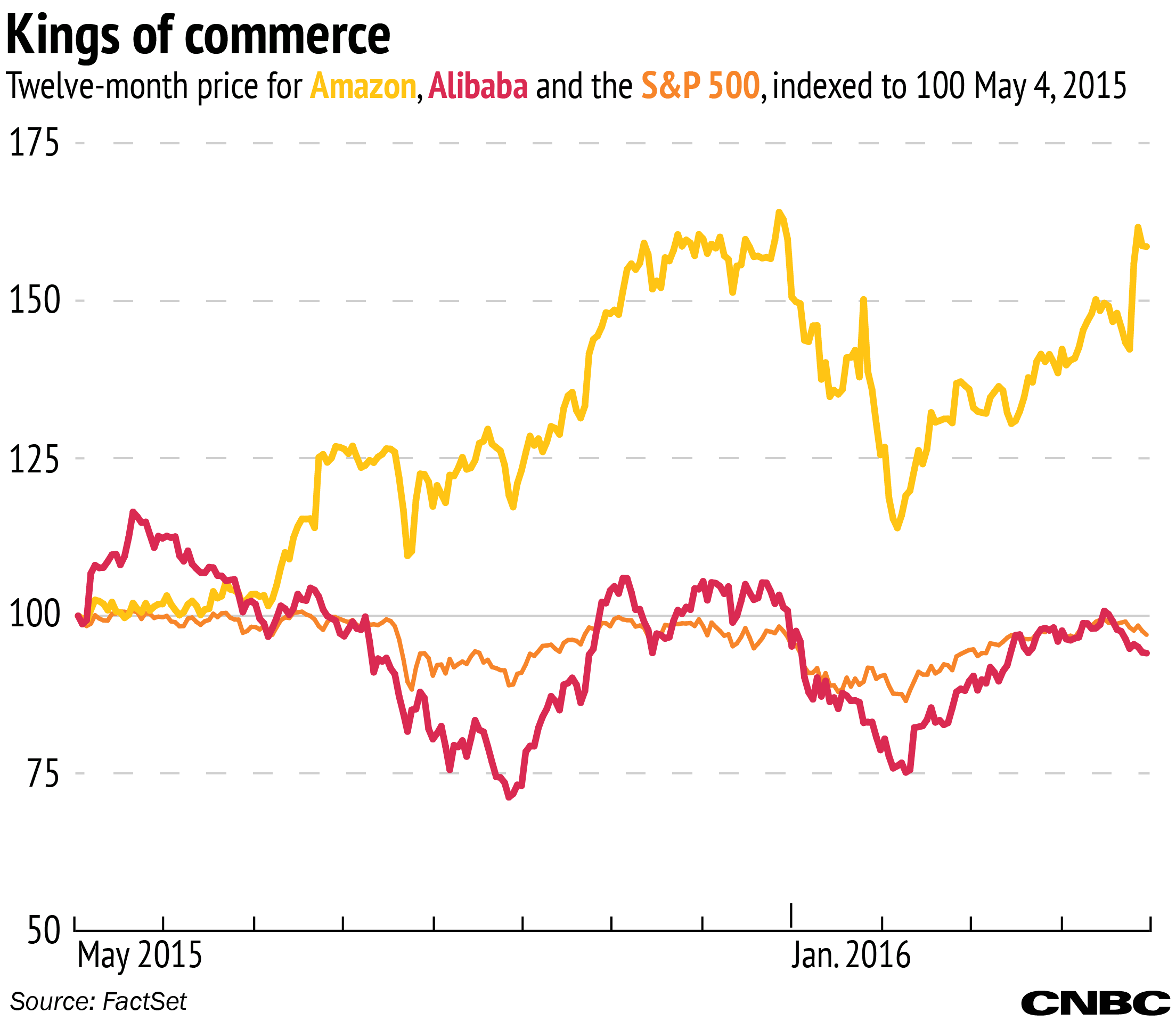Chinese e-commerce site Alibaba beat sales estimates with 39 percent growth year-over-year for the quarter ending in March, the company said Thursday. The company's explosive growth showed no signs of slowing despite the overall slowdown in China's economy.
Still, the company is down nearly 3 percent for the year and off 0.7 percent for the past 12 months. Compare that with Alibaba's American rival (and in some ways counterpart), Amazon. The Seattle-based company is up 57 percent over the past year.
Each is its country's biggest e-commerce company, but the similarities pretty much end there. They're fundamentally different business models operating in very different economies.








